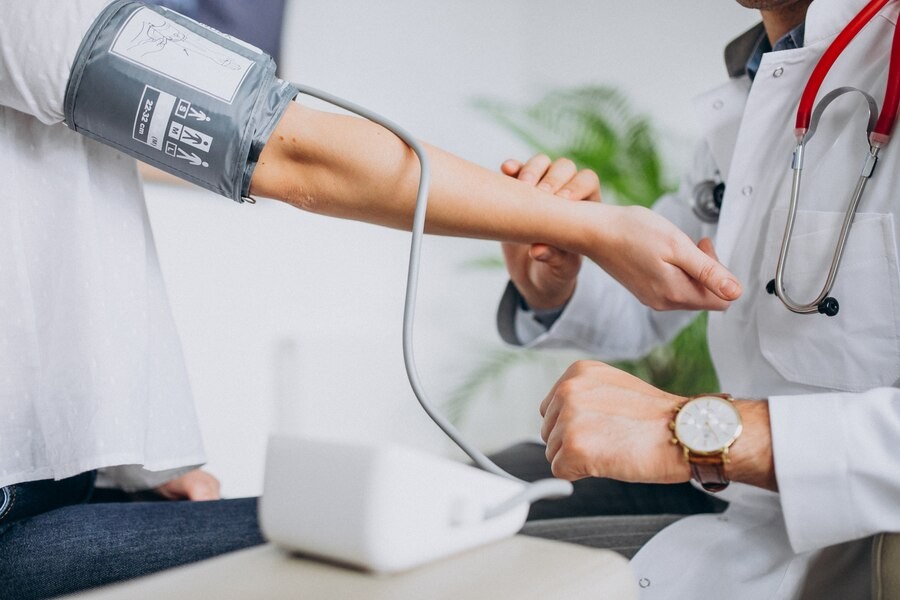Hypertension is often manageable through medications and lifestyle changes. However, for some individuals, taking medication alone is not sufficient to lower blood pressure effectively. This condition is known as resistant hypertension. So, how should resistant hypertension be treated, and what are the causes behind it?
What is Resistant Hypertension?
A person is diagnosed with hypertension if their blood pressure consistently measures above 130/80 mmHg during calm and relaxed readings taken twice in a row. If this condition persists for several months, doctors typically prescribe medications to help lower blood pressure.
Common medications used to treat high blood pressure include:
- Diuretics: Help reduce fluid and salt accumulation in the blood vessels.
- Calcium antagonists: Work by blocking calcium from entering heart cells and the walls of blood vessels, which helps to relax the vessels.
- Angiotensin-converting enzyme (ACE) inhibitors: These block ACE, an enzyme that produces angiotensin II, a substance that narrows blood vessels and raises blood pressure.
In most cases, these medications lower blood pressure successfully. However, if blood pressure does not drop to normal levels after taking these medications for six months, the condition is referred to as resistant hypertension.
Resistant hypertension is a serious condition because it significantly raises the risk of cardiovascular diseases. If you experience this condition, it is crucial to consult with a doctor for further evaluation and treatment.
Causes of Resistant Hypertension
Several factors may contribute to the development of resistant hypertension, including lifestyle choices, existing medical conditions, or side effects of medications. Common lifestyle factors that can make it harder to control blood pressure include obesity, phisical inactivity, high salt intake, and alcohol consumption.
Several underlying medical conditions are known to increase the risk of resistant hypertension, including:
- Kidney disease
- Hormonal imbalances
- Sleep apnea
In many cases, there may be no obvious cause for resistant hypertension. It is sometimes linked to genetic factors or referred to as a “pseudo-resistant” condition, where the apparent resistance to treatment is actually due to other factors.
Treatment for Resistant Hypertension
Treating resistant hypertension requires a multi-pronged approach that includes both lifestyle changes and medication adjustments. Here are some steps that can be taken:
- Limit salt intake.
- Stop drinking alcohol.
- Limit the use of NSAID pain relievers (such as ibuprofen) and replace them with paracetamol.
- Do aerobic exercise for at least 30 minutes per day, several times a week.
- Lose weight.
- Check and treat other medical conditions that affect such as diabetes, sleep apnea, or hormonal disorders.
The key to managing resistant hypertension is ensuring proper medication adherence. Many people with hypertension struggle to control their blood pressure simply because they do not take their medications consistently or as prescribed. It’s important to follow the prescribed dosage and timing exactly, as prescribed by your healthcare provider.
If you experience side effects or have trouble following your prescribed treatment plan, speak with your doctor. There may be alternative medications or treatment options that could be more effective or better suited to your needs. Never stop your medication suddenly without consulting your doctor, as this could have negative consequences.
Resistant hypertension occurs when blood pressure remains high despite taking prescribed medications for six months. If left untreated, it can lead to serious cardiovascular problems. If you have further questions about your health or treatment options, you can easily consult a healthcare professional via the Ai Care app, which can be downloaded from both the App Store and Google Play.
Looking for more information about other diseases? Click here!
- dr Hanifa Rahma
Cleveland Clinic. Resistant Hypertension. Available from: https://my.clevelandclinic.org/health/diseases/15601-resistant-hypertension#symptoms-and-causes
John Hopkins Medicine. Resistant Hypertension. Available from: https://www.hopkinsmedicine.org/health/conditions-and-diseases/high-blood-pressure-hypertension/resistant-hypertension
Crider, C. (2023). Resistant Hypertension: What You Need to Know. Available from: https://www.healthline.com/health/resistant-hypertension#what-it-is












